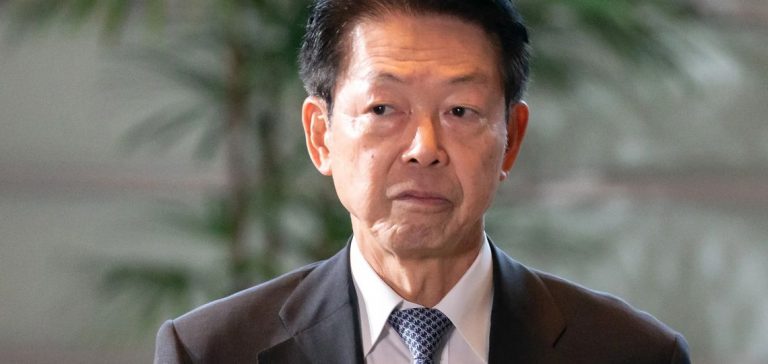Japan’s new Minister of Economy, Trade, and Industry, Yoji Muto, recently reaffirmed the country’s commitment to restart its nuclear power plants while maximizing the integration of renewables into its energy mix. This approach is part of a broader strategy to diversify Japan’s energy sources and reduce its dependence on fossil fuels.
Since the Fukushima accident in 2011, Japan has seen significant fluctuations in its energy policy. Prime Minister Shigeru Ishiba, upon taking office, altered his initial opposition to nuclear power, now opting for a balanced approach that combines nuclear and renewable energy. This shift aims to stabilize domestic energy costs and achieve the decarbonation targets set by the government.
Political and Energy Context
Before becoming Prime Minister, Ishiba was the only candidate within the Liberal Democratic Party (LDP) to firmly oppose the use of nuclear energy. However, faced with energy and economic challenges, he recently revised his position. He now advocates for increased use of renewable energy, including hydropower, while supporting the restart of secure nuclear plants. This decision reflects a desire to diversify energy sources and reduce Japan’s reliance on fossil fuel imports, which constitute a significant portion of the country’s energy imports.
Current State of the Nuclear Sector and Impact on Imports
Japan has restarted 11 nuclear reactors, representing about 20% of its capacity before the 2011 Fukushima disaster. This restart allows the country to generate nearly 11 gigawatts of additional electricity. Consequently, liquefied natural gas (LNG) imports fell by 8% last year, reaching their lowest level in 14 years. However, LNG and coal imports for thermal power plants remain high, totaling 12.4 trillion yen ($86 billion) and representing 11% of Japan’s total imports. This economic challenge remains a priority for Prime Minister Ishiba, who must find ways to stabilize domestic energy costs.
Decarbonation Targets and the Role of Renewables
Yoji Muto aims to maximize the use of renewables, which accounted for over a quarter of Japan’s energy mix in 2023. The primary sources include solar, wind, and hydropower. Japan has pledged to reduce its greenhouse gas (GHG) emissions by 46% from 2013 levels by 2030. The share of renewables in the energy mix is expected to reach between 36% and 38%. While these goals are ambitious, they still fall short of targets set by other G7 members, such as Germany and the United Kingdom, where renewables are expected to constitute the majority of power supply by 2035.
Economic and Security Challenges for Nuclear Restarts
The restart of nuclear reactors is a complex issue in Japan. For example, Tokyo Electric Power Company (TEPCO) is seeking approval to restart the Kashiwazaki-Kariwa plant, the largest in the world. However, TEPCO must convince local authorities of safety guarantees before proceeding. This dilemma highlights persistent nuclear safety concerns in Japan since the Fukushima accident and underscores the importance for the government to reassure local communities before any significant restart.
Implications for Europe and Global Markets
The revival of Japan’s nuclear sector has implications beyond its borders. The International Energy Agency (IEA) noted that the restart of Japanese reactors could ease the European market by releasing more LNG into the global market. This could reduce the risk of energy shortages during the winter, especially amid the energy crisis caused by the conflict in Ukraine. Japanese Prime Minister Fumio Kishida also announced that restarting a single nuclear reactor could free up to one million tons of LNG per year for other markets.
Asian Energy Transition Initiative (AETI)
As part of its regional strategy, Japan launched the Asia Energy Transition Initiative (AETI) to support decarbonation in Asia. With a budget of $10 billion, this program aims to develop technologies such as batteries, hydrogen, and ammonia, in collaboration with regional partners like Vietnam, Indonesia, and Malaysia. Japan hopes not only to promote its own energy model but also to export its technological expertise and solutions to these developing countries.
Outlook and Next Steps
Japan’s energy policies will depend on several internal factors, including public support and the capacity of regional governments to accept the restart of nuclear reactors. Furthermore, dynamics within the Liberal Democratic Party (LDP) and the outcome of the legislative elections scheduled for October 2024 will play a decisive role in the direction Japan’s energy policy will take. In the long term, the country seems to be moving towards a more balanced energy policy, combining an increased role for renewables with a strategic use of nuclear energy to ensure energy security and achieve its decarbonation goals.






















